Only 1-in-5 American adults is carrying some sort of student loan debt, and yet that relatively small group of consumers accounts for more than $1 trillion owed to lenders, more than either auto loans or credit card debt. And a new survey finds that nearly 60% of these borrowers are worried that they won’t be able to pay off their student loans. [More]
college
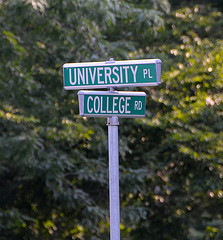
Feds And Colleges Now Blacklisting Student-Aid Scammers
More than 12 million U.S. college students applied for federal aid for the school year starting this fall, but around 126,000 of these applicants have been flagged by schools and the government as potential scammers looking to cash aid checks without ever intending to get an education. [More]

Jury Awards Former Student $13 Million In Lawsuit Against For-Profit College
One of the more common complaints against for-profit colleges is that the institutions make promises to prospective students about job placement and salary that the schools don’t make good on. A woman in Missouri recently sued one such for-profit school, saying it misled her about its medical assistant program. She had been seeking somewhere between $2-4 million in damages, but the jury went ahead and awarded her $13 million. [More]

Theme-Park Engineering And 3 Other Non-Traditional College Degrees That Can Pay Off
Most people know that degrees in things like economics, business, mathematics, and medicine can lead to high-paying real-world jobs, while a degree in Tuvan throat-singing, while fascinating and important, won’t necessarily help you make a down-payment on a house. But there are some non-traditional college degrees that could result in a nice paycheck. [More]
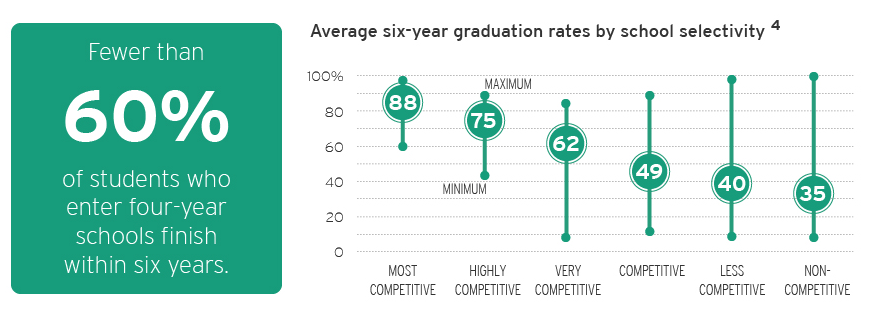
Why College Isn’t Always A Good Financial Investment
There’s no doubt that the average college graduate earns more than the average worker with only a high school diploma, but a new report shows that it may not always make financial sense to invest in a degree. [More]

The CFPB Answers Your Student Loan Questions, Part 3: Defaulting And Loan Forgiveness
In the second set of questions and answers about student loans, the Consumer Financial Protection Bureau’s Student Loan Ombudsman Rohit Chopra made a few mentions of the various service-specific loan forgiveness programs out there. Here, he gets into more detail and responds to questions about the one topic no one ever hopes to face: default. [More]

The CFPB Answers Your Student Loan Questions, Part 1: For Prospective Students
A little while back, we asked Consumerist readers to send in their student loan-related questions to Rohit Chopra, the Consumer Financial Protection Bureau’s Student Loan Ombudsman. Today, we’re bringing you his answers in three parts, each dealing with a different aspect of the topic. Since it’s about time for next year’s freshman class to decide on schools and financial aid packages, we’re starting with answers for prospective students. [More]
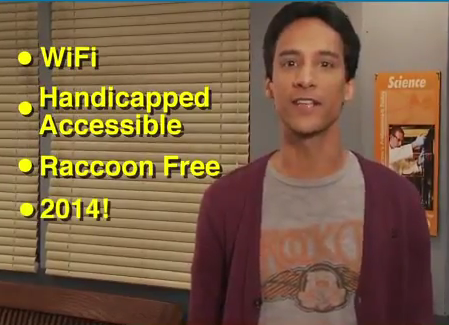
13 Attorneys General Voice Support For Federal Bill To Curb Advertising By For-Profit Schools
Earlier this week, Senators Kay Hagan (North Carolina) and Tom Harkin (Iowa) decided to take another go at introducing legislation that would seek to limit the amount of federal money for-profit schools could spend on advertising. At the same time, the Attorneys General from 13 states penned a letter to the chairs and ranking members of key Senate and House voicing their support for the bill. [More]
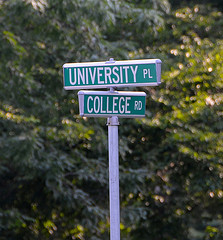
Student Loan Debt Is Creating Generation Of High-Risk Borrowers With Low Credit Scores
Lots of people graduate college with minimal credit histories. Repaying student loans was always a dependable way to build that history. But recent, rampant growth in student loan debt in the U.S. could slow that process for an entire age group. [More]

Study: Almost Half Of College-Educated Workers Overqualified For Their Jobs
Do you have a college degree? Do you have a job? You might well be overqualified for whatever it is you’re doing, suggests a new study, as almost half college-educated Americans are apparently in jobs they’re overqualifed for. And the way things are going, that’s how it will be for recent graduates down the line as well. [More]

Kentucky Sues For-Profit College Over Misleading Job-Placement Stats
If you’re comparing college programs and see job-placement rates of anywhere from 80% to 100%, that might sound pretty appealing. But what if the real numbers are not so rosy? [More]
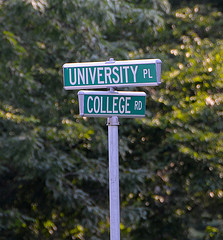
Some For-Profit Colleges Taking “Unlimited Data Plan” Approach To Tuition
A number of recent studies have cast a negative light on the for-profit college industry. A disproportionate number of students are not graduating or unable to find jobs that pay enough to allow them to repay their student loans. With so many people concerned that these schools might be debt traps, some programs are taking a new approach to tuition. [More]

Study: Women Earning Less Than Men Immediately After Graduating College
For anyone who thinks that the pay gap between men and women is something that doesn’t begin until later in their careers, or that this salary disparity is a disappearing relic of a bygone era, a new study claims that within one year of graduating from college, women are only earning 82% of what their male counterparts are making. [More]

Report Shows That College Debt Is On The Rise Again For Recent Graduates
Today in discouraging news: the amount of college debt held by recent graduates is on the rise again. Two-thirds of the class of 2011 nationwide held debt on graduating, and on average those students had about $26,600 to take away with them along with their diplomas. However, those numbers don’t even include most graduates of for-profit colleges, who usually borrow a lot more than other students. [More]
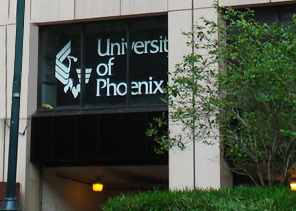
University Of Phoenix Not Exactly Rising From Ashes, To Close 115 Locations
With enrollment and revenue declining, the University of Phoenix announced yesterday that it will close about half of its physical locations around the country in an effort to save $300 million.
The closed locations includes 90 learning centers and 25 campuses, accounting for a total of 13,000 students. This will leave 112 Phoenix locations in 36 states. [More]

UNC Denies In-State Tuition To Veteran Because Her Husband Was Stationed In Texas
Anyone who has attended a public university probably knew at least one or two out-of-state students who gamed the system to get the much lower in-state tuition price. But an Army vet who has owned a home in North Carolina since 2006, says the state’s university system told her she had lived outside the Tarheel State for too long to qualify for the discounted education. [More]

More Than 1-In-5 Students At For-Profit Colleges Default On Student Loans Within Three Years
For the first time, the Dept. of Education has provided stats for people three years into their student loan repayments, and the numbers don’t paint a pretty picture. The percentage of college students defaulting on their loans is on the rise, with 9.1% of recent students defaulting within two years of their first payment coming due, and a whopping 13.5% defaulting within three years. And at controversial for-profit colleges, that number is alarmingly higher. [More]
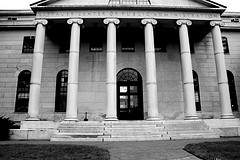
Study: Some State Universities Offer A Better Return On Investment Than Ivy Leagues
Sure, everyone has a hope that their kid can go to Harvard, Princeton — or even Brown, the Staten Island of the Ivy League — but a new study that compares how much graduates earn to what it cost for that framed piece of paper on the wall shows that there are many less expensive public universities that offer a better return on investment. [More]


